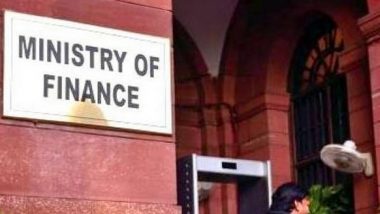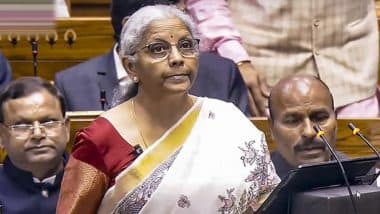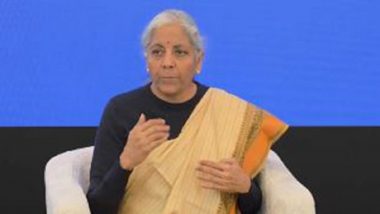New Delhi, July 1: Goods and Services Tax (GST), which completed 7 years of implementation on Monday, has brought happiness and relief to every home through reduced taxes on household appliances and mobile phones, the finance ministry said on Monday.
GST, which subsumed about 17 local tax and cesses, was rolled out on July 1, 2017. The theme of the 7th GST Day is Sashakt Vyapar Samagra Vikas (empowered trade overall growth). GST Council Proposes Waiving of Interest, Penalty on Demand Notices Issued to Taxpayers Under Section 73, if Tax Paid by March 31, 2025.
"With reduced tax rates on household goods after GST implementation, #7yearsofGST has brought happiness and relief to every home through lower GST on household appliances and mobile phones," the ministry said in a post on X.
The GST taxpayer base has increased to 1.46 crore in April 2024 from 1.05 crore as of April 2018. "We have witnessed a quantum jump in taxpayers base along with improved compliance," Central Board of Indirect Taxes and Customs (CBIC) Chairman Sanjay Kumar Agarwal said.
Giving comparative charts of pre- and post-GST tax rates of household goods, the ministry said GST has enhanced the ease of living with every household saving on expenditure on food items and items of mass consumption after GST implementation. GST Council Meet 2024: Government Rolls Out Pan-India Aadhaar-Based Biometric Authentication To Prevent GST Fraud.
The rate of food items like unpacked wheat, rice, curd, and lassi, which were taxed at 2.5-4 per cent before GST implementation, is at nil after the GST rollout. Household goods like cosmetics, wrist watches, sanitary plastic ware, doors and windows, furniture and mattresses are taxed at a lower rate of 18 per cent in the GST regime, lower than 28 per cent in the erstwhile excise and VAT regime.
The ministry said mobile phones, TVs up to 32 inches, refrigerators, washing machines electrical appliances (other than air conditioners), geysers and fans which attracted 31.3 per cent taxes in the pre-GST era, are now in the 18 per cent tax slab in GST regime.
It further said the compliance burden was reduced for small taxpayers, and the GST Council has recommended to waive off annual return filing requirement for taxpayers with aggregate annual turnover of up to Rs 2 crore in fiscal 2023-24.
The quarterly return filing and monthly payment of taxes (QRMP) scheme has reduced the number of returns filed in a year from 24 to 8, for more than 44 lakh small taxpayers, IFF (Invoice furnishing Facility) ensured seamless passage of ITC (Input Tax Credit), the ministry added.













 Quickly
Quickly






















